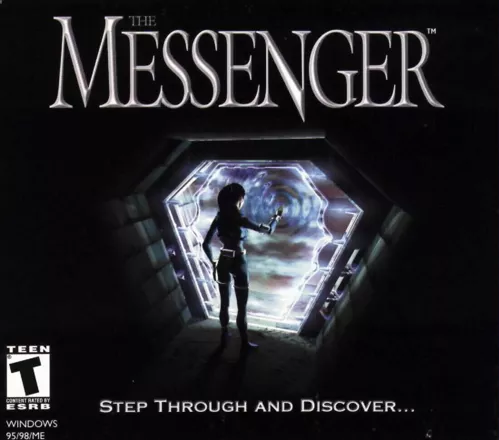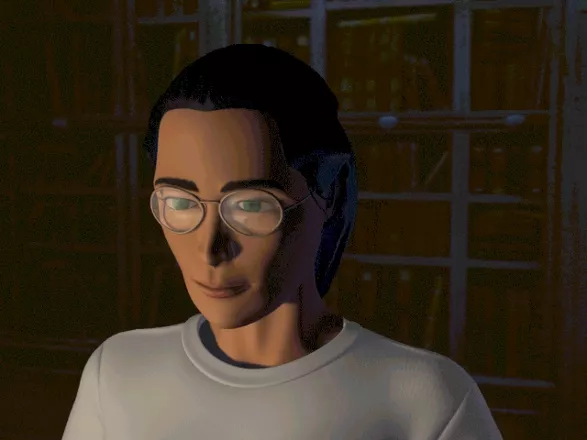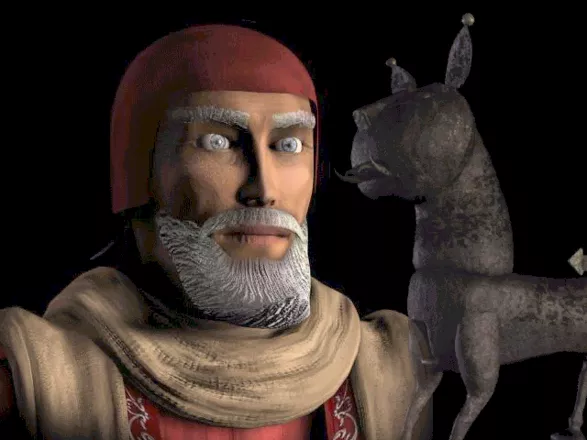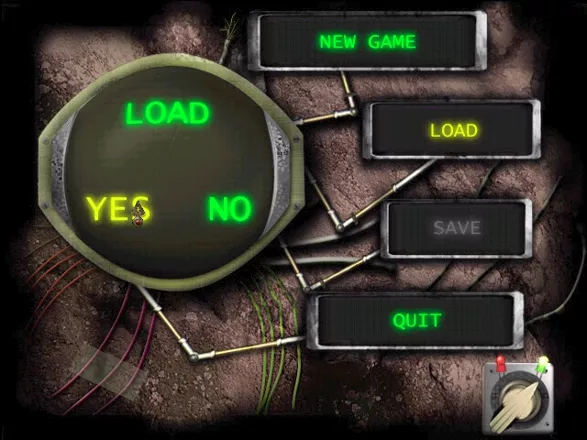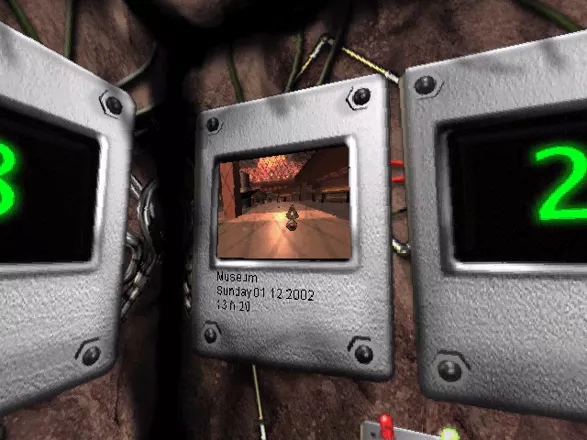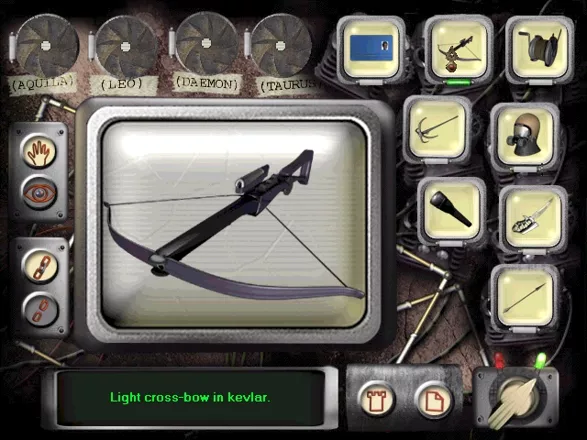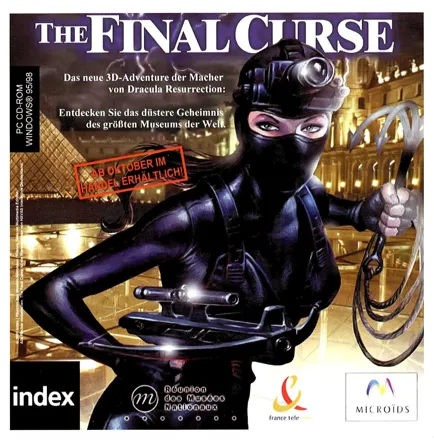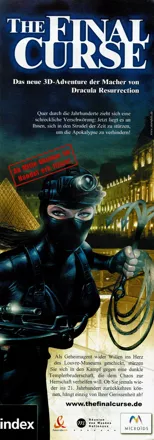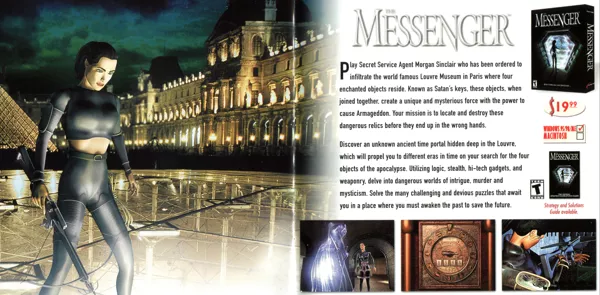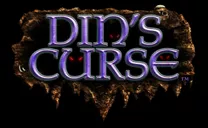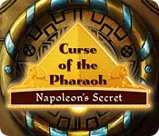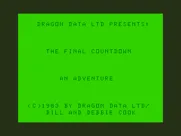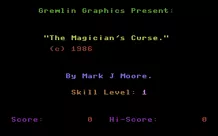The Messenger
Description official descriptions
You are Morgan Sinclair, Secret Service agent. The Dark Templars are attempting to secure 4 artifacts, collectively known as "Satan's Keys", to bring upon Armageddon. You must stop them by travelling back in time to locate the artifacts before they fall into the wrong hands...
The Messenger is an adventure game feature 360 panorama views.
Spellings
- Лувр: Последнее проклятие - Russian spelling
Groups +
Screenshots
Promos
Videos
Add Trailer or Gameplay Video +1 point
See any errors or missing info for this game?
You can submit a correction, contribute trivia, add to a game group, add a related site or alternate title.
Credits (Windows version)
83 People (76 developers, 7 thanks) · View all
| Original idea | |
| Concept designer & contents manager | |
| Co-scriptwriter & dialogue writer | |
| Music & sound effects | |
| Programming | |
| Editing of animations | |
| Interface design | |
| Additional 2D & 3D | |
| Graphic Assistants | |
| Plans of The Louvre |
|
| Paintings in the Small Gallery | |
| Production Manager | |
| Publishing committee | |
| Marketing | |
| [ full credits ] | |
Reviews
Critics
Average score: 60% (based on 21 ratings)
Players
Average score: 3.2 out of 5 (based on 14 ratings with 2 reviews)
The Good
The Messenger is an obvious attempt at going for the same edutainment/adventure hybrid "success" as in Traitors Gate, a title released earlier that features a remarkable similarity to this game. Basically The Messenger uses the same Myst-like interface to navigate an historically important landmark (this time the Louvre museum in Paris) and you are cast as a special agent with a multi-purpose crossbow to have your fun in it.
The storyline is merely an excuse for you to experience the history of the museum. As I mentioned, you are some sort of secret agent whose now dead father warns her about a group of satanic devices that can destroy the world all hidden in different time periods in the Louvre by the dark templars. As luck would have it, there is a time portal hidden in the depths of the Louvre, and so your task is to journey to each time period and get the devices before someone else does.
As a masquerading edutainment product you would expect a wealth of historical information and you get it in the form of a full on-line chronology of the Louvre's life from it's begginings as a small keep to contemporary times, and the building has been methodically re-constructed for each time period (or so the developers say anyway).
The interface and mechanics have been slightly refined for this game, with less loading-heavy interludes, a bigger playing area and an overall faster place, as well as a helpful audio cue that pops up whenever you are in a puzzle-related screen and a use of more streamlined technologies that allow the game to run smoother under XP.
The Bad
To say that the graphics are shitty is an understatement, the game is composed of panoramic still-images which are mercifully well modeled and textured, but every time you meet up with a character you'll cringe at the amateurish character design and poor detail. The main character herself looks like a transvestite, and the animation is so poor you'll swear that the developers never heard of such stuff as inverse kinematics for character animation.
Soundwise the music is poor and uninspired and only manages to annoy you whenever it makes it pops up, all the sfx have that dry "ripped from a library" sound quality, and there are other assorted technical mindfarts such as needing the first cd of the game always to run the game, no matter if you are on the second one.
The general level of the puzzles ranges from idiotic to moderate, but the real problem with them is that they often include stupid Myst-like puzzle locks and crap like that that makes no sense at all in the context of the game. And speaking of the context of the game, doesn't time travel involve paradoxes and stuff like that? How come our she-male hero goes around snipping people in the head with a crossbow across all time periods without so much as flinching??
The Bottom Line
All in all this is Traitors Gate in france, with weaker graphics and sounds, no free-roaming gameworld, and lamer puzzles. The addition of a storyline that involves dark conspiracies and time traveling can make the experience a bit more bearable but for the most part this is one of those titles you just have to avoid.
Windows · by Zovni (10500) · 2005
A decent, but by no means great, adventure
The Good
Where they got the English title "The Messenger" is beyond me! They should have stuck with "Louvre: The Final Curse" as it makes much more sense.
Since I'll probably never physically go to this historical place, I found it interesting to visit there in this game. Your character, Morgan (or Morganna as her father calls her in the opening segment), seeks four ancient objects within the Louvre to stop the destruction of the world. Those objects were hidden by the Dark Templars and were kept hidden through several time periods. Travelling through time, you will visit the Louvre during the various reigns of power (the Middle Ages of the 13th century, the 18th century reign of Henry IV, and the 18th century reign of Louis XV). If you want to know more about the Louvre, the game provides an audio history of it with pictures.
The game has a wonderful travel map, accessible from the inventory screen. This allows you to jump between rooms you've already visited. The map changes depending upon which century you are exploring.
The puzzles in The Messenger are not terribly difficult, but some may leave you scratching your head. For the most part, your main objective is to gain access to the various rooms inside the Louvre. Many of the "true" puzzles are in the form of locks to doors or cabinets, so finding keys (or other ways to open them) is a major part of your questing. Other puzzles involve combining certain objects you find along the way to perform specific actions. Luckily there are clues for the majority of the puzzles usually in the form of written documents.
The inventory system is a bit different than in other games, and I have mixed feelings about it. Objects in inventory can be used and combined and some can be examined more closely. Each one has a written description, an essential feature in an adventure game, I think. But, you can carry only 8 objects at a time, in addition to the 4 "Satan's Keys", which have predesignated inventory blocks. The rest of your inventory is held within treasure chests. So, you are constantly having to decide what to carry with you at any given moment. If your inventory is full (or if you need something else), you must find one of those treasure chests, but at least the chests are well-placed and fairly convenient.
We all know the power of a good musical score, not only in the opening intro, but also within the game itself. Ideally, the introductory music will be strong and powerful, leading you into the game with a feeling that the game will be a good one. During game play, a great game will not only give you varied background music but key scenes will be enhanced with dynamic scores full of the appropriate elements of suspense or achievement. In The Messenger, while the lead-in opening musical score is good, the in-game music is only mediocre becoming monotonous after awhile.
The sound effects are minimal. Those that are present are realistic and timely.
The graphics are typical of other adventures released during the past few years by European developers. The hand-drawn static scenes were rendered rather fuzzy, and the characters were a bit blotchy at times. (See more in the "Bad" section below.)
There is a little violence, but nothing bloody. Brute force is sometimes the only way to get the desired result. A few sexual remarks surfaced now and then, but nothing that a teenager cannot handle.
The Bad
Similar in design to the Dracula Resurrection Series games, there are only 8 game save slots. I disliked it in those games, and I still don't like it in this game. Since you can die in The Messenger, to me it is stupid to limit players. There is no "second chance" and you are usually given no warning that something bad is about to happen so timely saves are important.
The graphics are consistent with other games developed by Wanadoo Edition and its founding companies (index+ and France Telecom). I'm being kind here when I say they weren't the best. Like those, the imaging is fair and the atmosphere is decent, as are most of the characters, but there are some unnecessarily dark areas in the scenes that adjusting your monitor will not help. The images are static and nothing moves except during conversation cut-scenes.
If you watch the characters talk up close, their teeth look a little funny. But, this is better than no teeth at all, which I've come across in some other games. (Necronomicon comes immediately to mind in this respect.) Also, lip-sync may have been perfect in French, but in English it was not quite "in sync".
There are no conversation choices so you are stuck with whatever the designers felt was necessary. The characters talk way too fast also. No subtitles are provided, which doesn't help matters. You may miss something important if you don't listen carefully. For instance, I had to replay the introductory scene at least 3 times to understand what was being said. Understanding the French accent plus the rapid speech made it a little difficult at times. Having no option to repeat some of the segments made it worse.
Having to always start the game with CD#1 in the slot is irritating when the saved game you want to load is on CD#2. Problems can also surface when you first insert CD#1 causing two copies of the game to be open at the same time. This can cause lock-ups, garbled graphics and disappearing inventory objects.
I also experienced a few audio segments that skipped or repeated, but the game recovered in a few moments and I was able to get through them alright without more problems.
Lastly, the ending ... well, I won't give it away for you. Suffice it to say that it was quick and unsatisfying.
The Bottom Line
If you have always wanted to visit the Louvre, this is your chance. The game is not too short, the story fairly original, the graphics decently good, the puzzles somewhat challenging, the lead character attractive, and the gameplay is non-linear. It is not a great adventure game by any stretch of the imagination, but it is fun to play.
Windows · by Jeanne (75814) · 2005
Trivia
Development
The developers collaborated with the Louvre Museum Cultural Department to ensure historical accuracy
Analytics
Related Sites +
-
Hints for The Messenger
These question and answer type hints give you clues before the solution is revealed so the game is not spoiled for you. -
The Messenger/Louvre: The Final Curse Walkthrough
by Jen at Four Fat Chicks -
Zarf's Non-Review
A review of The Messenger by Andrew Plotkin, which due to frustrations with the game and its design is largely a diatribe, such to the point that it's deemed a non-review by its author (November, 2001).
Identifiers +
Contribute
Are you familiar with this game? Help document and preserve this entry in video game history! If your contribution is approved, you will earn points and be credited as a contributor.
Contributors to this Entry
Game added by Kasey Chang.
Macintosh added by Slik. iPad, iPhone added by winterheart. PlayStation added by Jeanne.
Additional contributors: Cravo, Rebound Boy, curacao, Jeanne, POMAH, lobo rojo, Zeppin, Patrick Bregger, winterheart.
Game added February 23, 2001. Last modified March 18, 2025.


